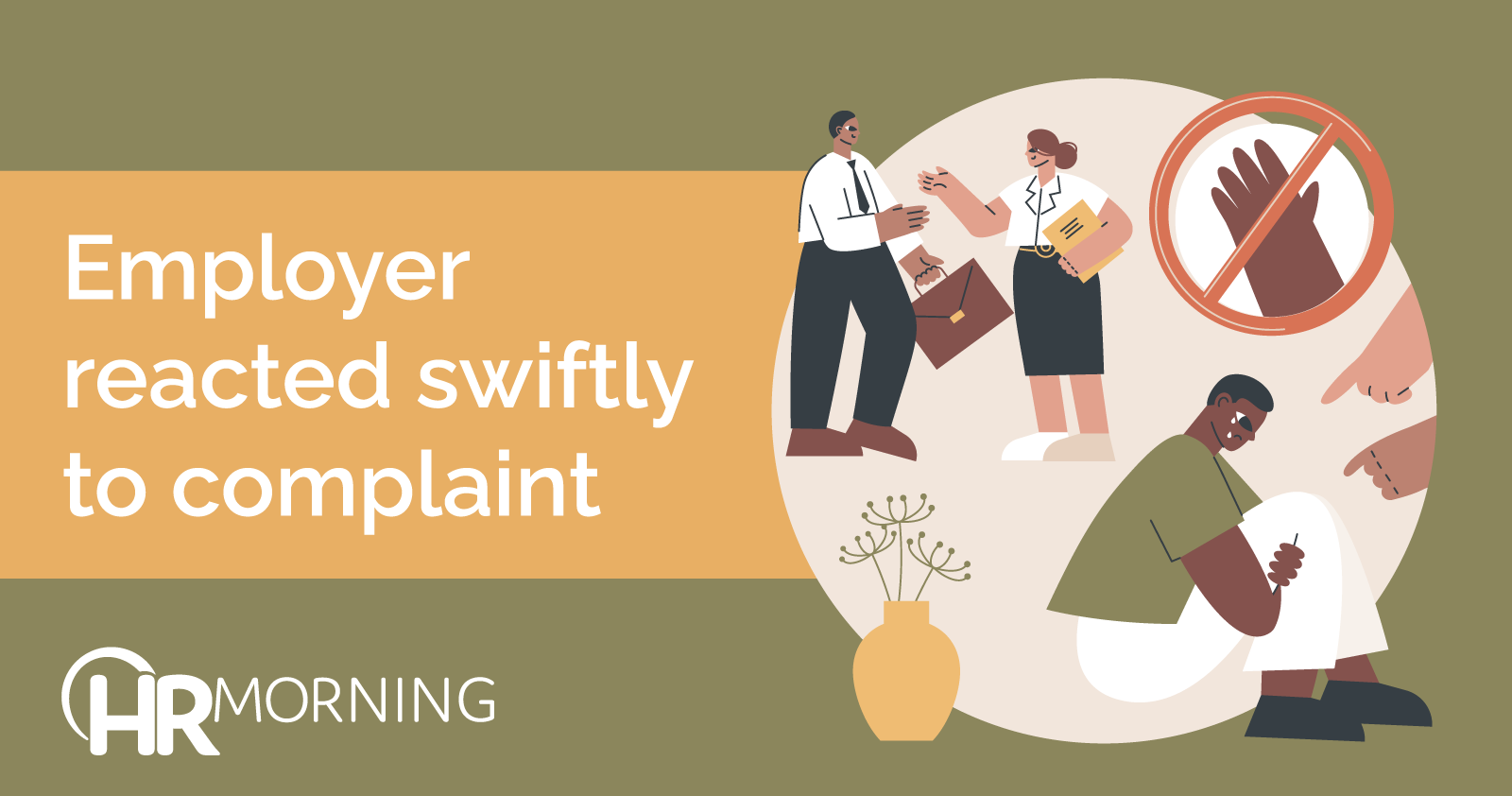Every good employer knows that when an employee complains of racial harassment, it has the responsibility to investigate the claims and put a stop to the behavior.
But how thorough does the investigation have to be? How quickly does it have to be conducted?
A recent lawsuit resulted when an employee faced severe racial harassment and sued his employer — but the company also worked to put a stop to the harassment.
So who was in the wrong? Here’s what a court said.
Multiple incidents
Ronald Burns worked as a maintenance tech at Berry Global in Kentucky. He experienced multiple incidents of racial harassment within three weeks.
The first was someone leaving a note on his locker that said, “dance monkey.” Burns complained to HR, and the company then examined security footage in an attempt to identify who left the note.
Unable to nail down the culprit, management reminded employees that this kind of harassment wouldn’t be tolerated.
The next incident consisted of someone leaving a noose on Burns’ locker. He complained again, and was given a few days off with pay. HR interviewed dozens of employees about the incident, but were unable to identify a suspect.
A few weeks later, Burns found a note in his locker containing a racial slur. Again, he reported it, and again, HR conducted interviews. Based on these interviews, they were able to identify a suspect. He was suspended without pay, and Burns was offered a shift transfer. He declined.
Several months later, Burns found another noose amongst his things. He immediately quit and filed a racial harassment suit against the company.
‘Shy of perfect’
The court needed to determine if the company adequately responded to the harassment, or if it tolerated or condoned the behavior.
Burns’ attorney pointed out that the harassment never stopped, and the company never conducted any formal racial harassment training.
However, the 6th Circuit ended up siding with Berry Global. It said, “Burns undeniably suffered heinous racial harassment while employed by Berry,” but the company took “prompt, if shy of perfect, action.”
Essentially, the company did work hard to find the perpetrator and took each incident complaint seriously.
What employers can take away from this case is that your response to harassment doesn’t have to be perfect. However, employers do need to act quickly and reasonably when they receive a complaint.


